- Home
- Anne Easter Smith
This Son of York Page 25
This Son of York Read online
Page 25
Edward suddenly cried: “Farewell, Mistress Nose-in-a-Book!” The friendly nickname Meg had earned for her love of books made Richard forget his sadness and cheerfully chime in.
Hearing this annoying endearment for the final time made Margaret lean out far enough to see her beloved family get smaller and smaller under the palace gate. She had never felt so alone. She knew it was the last glimpse she would have of them for years—perhaps for ever. Her tears ran unabashed down her face, and she clung to her wolfhound Astolat’s neck, as her faithful servant, the dwarf Fortunata, patted her mistress’s knee.
“Farewell, England,” Margaret sobbed into the wind. “And God save the house of York.”
It was an astute plea as Margaret was leaving an England in turmoil and thus the crown in danger. Indeed, on several occasions during the week-long bridal journey, Edward had received alarming information of incidents that were rumored to include Lancastrians, Margaret of Anjou and, most lamentable for the Yorkists, my lord, the earl of Warwick.
Edward took the arm of each brother, turned them around and marched them back inside the archbishop’s palace, where they proceeded to drink heartily of the strong apple cider for which Kent was famous.
“I think we gave our sister a royal send-off, do you not agree?” Ned asked after the second pouring. “Let us hope Charles recognizes how fortunate he is and treats Meg with the respect she deserves.” He chuckled. “He will regret it if he does not.”
His brothers laughed in agreement and raised their cups. “To Meg!” George cried, and all three downed their cider.
Edward beckoned to his brothers to lean in over the table. “Did you notice who I sent with her as her champion and my representative? Our sister is enamored of Anthony Woodville, and I have a suspicion the feeling is mutual. What irony that her lover should give her away to her husband, don’t you think?”
Richard did not think it was irony; he thought it was cruel, but he said nothing and tried to join in the laughter. Also, he was not as familiar with the apple liquor they were downing with alacrity as he was with ale or wine. Hiccuping loudly after his third helping, he banged his cup down and watched Ned go in and out of focus at an alarming rate. “What’sh in this?” he slurred. “I shwear I haven’t had mush.”
Ned grinned and winked at George, who was also doing his best to stop his own body from reeling. “Poor little Dickon,” the oldest York teased. “He’s been too long in the north where the strongest liquid they have to offer is ewe’s milk. ’Tis time you learned to drink seriously, my lad. Especially if you are to be with me more often.” He reached for more cider and began to pour. “Will and I are wont to frequent the city taverns when we can; the wine and women are more plentiful and accommodating than at Westminster.”
Edward’s words struck a raw nerve with Richard. He had parted from Kate at Stratford with a heavy heart. She was radiant in her pregnancy but had welcomed him to her bed during the few nights the royal party had feted the bride. In whispered conversations after blissful lovemaking, the lovers had told each other of their hopes and fears, and Richard had promised to support Kate and his child, when it came. They had shared gifts—his a gold filigree ring and hers a French écu on a leather lanyard. “My father gave it to me. It came from Agincourt,” she had told him, slipping it around his neck. “It has brought me good luck. Mayhap it will bring you the same.” He had kissed her and told her he loved her. Coward that he was then, he had not told her he would always be faithful. It would have been cruel to explain about duty at such a sweet moment. He had made love to her instead. But Richard swore to himself that he would remain steadfast until such time as he would make a marriage befitting his royal status, which now brought him back to Ned.
Richard stared at his brother and did his best to concentrate, as one does knowing one is inebriated, but the drink also gave him unaccustomed daring. “Have you no shame?” he answered finally, not realizing he was shouting. “You leave your wife’s bed to go whoring? Is that the way a king behaves?”
The momentary silence hung like lead in the small solar. George instinctively shrank back in his chair, a small smile curling his mouth; for once it wasn’t he who had angered the king. Edward’s eyes glittered as he raised them from the jug to Richard, and the set of his jaw told of his ire.
“You presume to accuse me, your king, of bad behavior, my lord?” Edward’s measured tone fooled Richard for a second and gave him license to continue.
“Aye, Ned, I do. You told me once you loved Elizabeth. Seeking pleasure elsewhere does not bear out that love. You pledged your troth before God…” He got no further. Edward suddenly stood up, knocking over his chair and thundered his fists on the table.
“You insolent pup!” he roared, leaning in. “Drunk or not, how dare you! My marriage is none of your business. I am King of England, and shall do as I please.” He glared down the table at his youngest brother, who had initially flinched, but now rose to face Ned, the drink giving him courage.
Holding firmly to the table edge to steady his legs, he told Edward exactly what he had been thinking about his big brother. “You have been my idol all these years, Ned. I looked up to you—we all did. None was prouder of you on your coronation day than I, except perhaps for Mother. I have wanted to be like you all my life, but now…now I am not so sure. You seem to care more for your own pleasure than you do for the welfare of England. How can you set a good example as king when you have no morals?”
George gasped, and Edward took a step back. Not even his mother had given him a dressing down such as this, although Edward knew she had been close—especially after the revelation of his secret marriage. He considered Richard for a prolonged moment, watching his brave little brother squirm on drunken legs awaiting his fate. Ah, the power of kingship.
“Have a care, Richard,” Edward said finally, the measured tones returning. “I should have you put in chains for speaking thus to your king. But you are my brother first and so I shall demand your apology instead. I hope ’tis the drink that has addled your brain or I would take you for a fool or, worse, a prude. Therefore, I shall forgive your outburst. But hear me well, Richard, I will not countenance another.”
Richard felt for his chair and sat down, but his eyes never wavered from Edward’s. He knew he was in the right, and although he wanted to do nothing now but run to the garderobe and lose the contents of his stomach, he said: “I apologize, my lord, but I must stand by my words.”
“Fair enough,” Ned said, relaxing. “Spoken like a York. What say you we find some food.”
And just like that, Edward’s anger died. The next day, he was called away to London on urgent business and took Richard aside. “Do not imagine I have not thought on your words of last evening. But bear in mind, my boy, don’t think I’m ignorant of your dalliance between the sheets with a certain young lady, who,” and he paused meaningfully, “who, I believe is married and with child. Be careful you are not called hypocrite.” He chuckled as he saw Richard’s chagrin and pulled him into a brotherly embrace. “You, too, may find one day that passion trumps duty.”
Never, Richard thought. Not ever.
Richard’s resolve may have wavered a little when he was sought out by Kate’s father-in-law, Master Haute, one day in early October, as Richard was returning to Baynard’s from his daily studies at Lincoln’s Inn. Ned had been as good as his word and arranged for Richard to study the law under Justice Markham, known as “the Upright,” and Richard’s first foray into the law courts was to watch Markham try several instigators of a plot to bring back Queen Margaret from France. Those first months, Richard had struggled with the Latin, but as he read more and strived to understand the English laws, his fluency improved. “Dei verbum est legis,” he was able to tell his chaplain a few months later. “Indeed the word of God is the law,” the delighted cleric had responded.
The affable Martin Haute nodded when a page pointed to Richard seated under a tree, reading a page from a sheaf of papers. A tall
athletic man in his late forties, the gentleman from Suffolk bowed and begged a moment of Richard’s time.
He cleared his throat. “Your Grace, I am Martin Haute of Chelsworth. My daughter-in-law is Katherine Haute.” He wished he had not acquiesced in seeking out the duke of Gloucester with Kate’s news. Why would the young man care, he had argued, but his wife, Philippa, had reminded him that Richard had been a guest in their home briefly and that Kate had come to know the duke at Sir John Howard’s manor. She had seen no harm in Kate’s friendly request. “’Tis an opportunity for you to be known to the king’s brother, Martin. It cannot hurt your career at court.”
Now facing the young duke, who had risen quickly at the mention of Kate’s name, Martin thought his mission foolish, but there he was. “Kate wishes to be remembered to you,” he said, “and she thought perhaps you would be happy to know her news. She has given us a beautiful granddaughter, born two weeks since. We insisted the babe be named Katherine after her mother.”
Richard felt as though he could float off the ground. A child? He had a child—a daughter. It took all his resolve to calmly put out his hand to shake Martin’s and say, “My congratulations to you and to your daughter-in-law, Master Haute. I trust Kate and her babe are well?” What he really wanted to do was dismiss the man and give out several shouts of joy. Instead he listened as Martin described young Katherine and how she was the image of her mother. May the saints be praised, Richard thought. The Hautes mercifully thought the child was their son George’s, who was blond-haired and blue-eyed.
The bell for terce rang and seeing Richard gather his papers, Martin bowed and politely excused himself. As he rounded the corner of the nearest building, he could have sworn he heard whooping.
With his obligations to both Edward and Warwick and his work at Lincoln’s Inn, it was six months before Richard could excuse himself to ride to Suffolk and meet his daughter. He had, however, made good on his promise to Kate to help provide for the child. An annuity of five pounds was entered in Richard’s household accounts in Katherine Haute’s name, with no explanatory footnote.
Kate had moved from her in-laws’ house in Chelsworth and was the proud owner of her own small house, given to her by Margaret and Jack Howard on their property in Stoke by Nayland. Only they knew of little Katherine’s paternity, and removing Kate from her in-laws lessened those good people’s chances of discovering it, too.
Richard and his squire, a young man named John Parr, rode fast out of the Aldgate, joined the Colchester Roman road and thence onto Stoke. With every passing mile, Richard’s anticipation grew. He wondered if motherhood had changed Kate in some way. Would she still be beautiful? Would she still care about him? Her letter-writing was sporadic, and he could see she labored over the penmanship. He loved imagining her chestnut head bowed over a parchment, her generous mouth screwed up in concentration, and her ill-sharpened quill leaving splotches on the page. Would the baby scream if he picked her up? At least he knew that George Haute would not be there—he had gone with Jack Howard and Warwick to Calais.
As they cantered through the village of Stoke towards Tendring Hall, Richard wondered if he should have alerted Kate first, but he wanted to surprise her. It had been a spur of the moment idea, and so he had decided to inform only Lady Howard of his visit. The kindly Margaret was waiting for him and, after giving him refreshment, sent Wat the groom down to Dog Kennel House—the name Jack had given Kate’s new home—saying she wished to see Kate. A true romantic, Margaret was relishing the clandestine meeting between the two young people.
Margaret was discreet enough to have left the tower room when Kate arrived looking for her, so she did not witness the passion with which Richard and Kate were reunited. She did watch and smile as they trotted down the long drive to the cozy cottage on Richard’s horse, Kate cradled in front of her lover. Margaret knew full well what love was; she and Jack had found each other after previous marriages, and she had never been happier.
Once upstairs in Kate’s fire-lit chamber, Richard could not believe the entrancing little person swaddled in her cradle was his. He gazed in wonder at the cherubic face framed in wisps of copper-colored hair, the baby’s tiny mouth working on her thumb as she slept. “She’s perfect!” he said. “I cannot believe she is mine.” He pulled Kate to him and whispered, “Oh my dear, my heart is so filled with pride and joy. How can I ever thank you?”
Smiling seductively, Kate responded by drawing him to her bed.
With Richard’s knightly training complete, he was released from Warwick’s charge and was a frequent guest at Edward’s council table. The rumors of rebellion were rife in April, and Edward had not lost time executing several Lancastrian lords for treasonable treating with Margaret of Anjou. The previous autumn he had allocated money to local sheriffs for the purpose of spying on the suspected families in their district. It was the first spy network set up in England, and the resulting arrests had revealed to the council the precariousness of Edward’s hold over the kingdom. Richard was dismayed to learn how many times the earl of Warwick’s name had been associated with some of the accused troublemakers.
What was worse in Richard’s eyes was that George’s name was being more and more associated with the earl. He feared for the stability of his family, let alone England.
“Why do I hear nothing but praise for Warwick when he is clearly undermining his king?” Edward complained to Richard one day. “Just because he dispenses leftover victuals to the commoners outside his door does not mean he is an upright man.” Richard bit his tongue as he had seen how Warwick drew the people to his side through his even-handed and strong governance.
“Perhaps if you showed more compassion for your subjects—stopped taxing them with so many benevolences, heard their grievances with respect to outdated and unfair laws—they would rally to your banner, Ned.” Richard was becoming more at ease in his role as advisor to his brother, and Will Hastings had more than once complimented Richard on his maturity and common sense. Knowing how much Edward favored Will, Richard was gratified to have earned the older lord chamberlain’s approbation. The young duke still did not approve of the unfortunate influence the hedonistic Hastings had on the king, but he had begun to understand that Ned was just as guilty. It was as well Richard had earned the councilor’s trust, for in a very short time the two would need to work in tandem on behalf of Edward to avert a regnal crisis.
In January, Richard had served on a special commission of oyer and terminer for the first time. Presiding alongside several other nobles, Richard watched as the judge and jury found two traitors guilty of being in league and plotting “the final death and destruction of the Most Christian Prince Edward IV…”
He did not, however, choose to witness the cruel hanging, disemboweling and quartering of the accused. He was not so naive as to think he would never have to see such a death—it was part of everyday life in that day and age—but this was his first time of pronouncing a death sentence, and he chose to leave Salisbury before it was carried out. Am I a coward? he worried, remembering how he had vomited upon seeing poor Piers Taggett’s violent death. He had been spared seeing bloodshed in the years since Ludlow, but he did not doubt that at some point, he would have to put his knightly skills to the test and spill another man’s guts without benefit of choice. Today, he had had the choice, he reassured himself, and he was about to urge his horse into a canter when he fancied he heard his father’s voice asking the same question: “Are you a coward, my son? That is what others will think when you are absent from the punishment you were responsible for meting out.” Richard gasped and clutched his chest, the blood pounding in his ears. Is that what they will believe? He could not tolerate that he—Richard Plantagenet, son of York—might be branded a coward.
Reining in his mount, he glanced about him, wondering who was watching. Only a washerwoman hanging clothes raised an eyebrow as the young noble, grimly talking to himself, made an abrupt turn and galloped back to the market square.
&
nbsp; By the time the third man was quartered, the horror of the cruelest of executions eventually allowed the bile to settle back into Richard’s stomach. The young man was becoming hardened to his station in life, like it or not.
An uprising in Yorkshire was reported in early April, led by an activist calling himself Robin of Redesdale, and although Edward trusted in Warwick’s brother, John Neville, to rout the rebels, which he did with little or no resistance, it unnerved Edward that Neville agents were said to have incited the unrest.
“At least I can count on one of our Neville cousins,” Edward remarked to Richard. “John seems to understand loyalty better than his brother.”
“Be not so quick to condemn my lord of Warwick,” Richard replied. “We only suspect him of turning his coat. I still cannot believe it of him. This rebellion had naught to do with him.”
Edward grunted. “I pray God you are right and that this is the end to the troubles.”
It was not.
Two weeks later another “Robin,” this time of Holderness, gathered followers in the East Riding of Yorkshire, who seemed bent on restoring Henry Percy to his rightful earldom of Northumberland. These ragged men threatened at the very gates of York until once more John Neville, who had, ironically, been given the very earldom in question by Edward many years since, put this rising down as well. However, a revival of Redesdale’s movement occurred almost immediately in Lancashire, and his army grew. It was time for Edward to leave the comfort of Westminster and deal with the insurrection himself.
It was also time, Edward said, for Richard to get a taste of combat. “You will come north with me, brother. Go muster your men.”
Muster his men? How? Richard, in his seventeenth year, had only a few retainers at his disposal. His squires, a few servants, and his friend Rob Percy, who had chosen to join Richard’s household from Middleham. Certainly, Richard had others he could call on from his several land holdings scattered around England, but Edward was leaving immediately. Richard also found himself low on resources to pay those he could muster. It was an embarrassing situation to be in for a royal prince, he fumed, but he did not dare complain to Ned. Instead he asked for a loan from a trusted friend, who had once asked a favor of Richard.

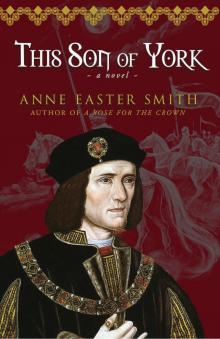 This Son of York
This Son of York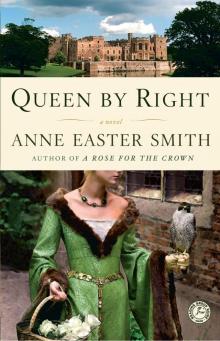 Queen By Right
Queen By Right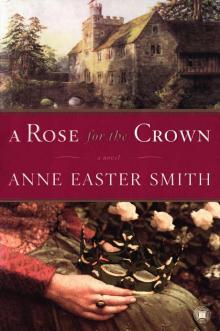 A Rose for the Crown: A Novel
A Rose for the Crown: A Novel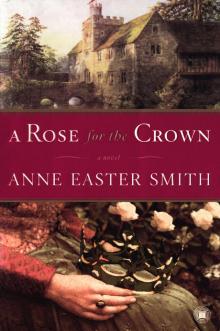 A Rose for the Crown
A Rose for the Crown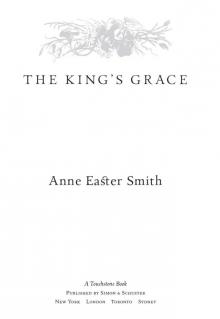 The King's Grace
The King's Grace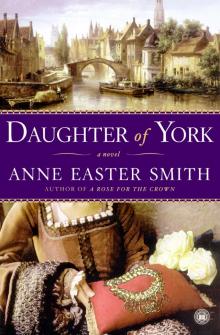 Daughter of York
Daughter of York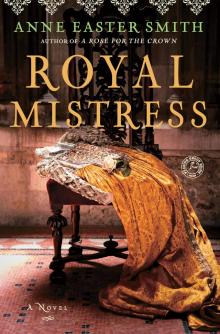 Royal Mistress
Royal Mistress